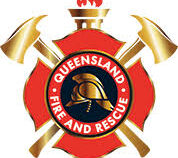Human Rights Act 2019
Human rights are basic entitlements that belong to everyone regardless of your background, what you look like, what you think, what you believe or any other status or characteristic.
The Human Rights Act 2019 protects the human rights of every person in Queensland when they interact with the government, police, public hospitals, public schools and other organisations doing public work.
Quilpie Shire Council has obligations under the Human Rights Act 2019, to act and make decisions in a way that is compatible with human rights and to give human rights proper consideration when making decisions.
For more information on Human Rights in Queensland visit the Queensland Human Rights Commission website at www.qhrc.qld.gov.au
Please follow process below to make an official complaint.
Administrative Action and Human Rights Complaints Process
Council has clearly defined procedures for investigating administrative action complaints. An administrative action complaint is a complaint about a Council service
or other administrative action.
The process for dealing with an administrative complaint can be found here.
Complaints may be made in writing to:
Chief Executive Officer
PO Box 57
Quilpie QLD 4480
or via email to admin@quilpie.qld.gov.au
How do I access information?
Documents held by Quilpie Shire Council may be accessed through a variety of mechanisms. The most appropriate method of seeking access to information will depend on what type of information is sought.
Information of Quilpie Shire Council is commonly accessed through the following avenues:
Publication Scheme
Publication Scheme
Our publication scheme describes and categorises information routinely available. It has been developed to give the community greater access to information held by the Quilpie Shire Council.
All information and documents accessible via the Quilpie Shire Council publication scheme are provided free of charge however photocopy charges may apply where a hard copy version is required. Current photocopy costs are $0.85 cents per double sided A4 page (ie $0.85 cents for every two document pages).
Information has been grouped into the following seven information classes:
About Us
About Us
(Who we are and what we do)
About Us (Who we are and what we do)
Our Annual Reports are a good starting point for finding a range of information about how Quilpie Shire Council operates.
Council’s role in Government
Quilpie Shire Council is a Local Government Council – part of the third or lowest level of government in Australia, often seen as being the most accessible to the people. Council is classified as a Level 3 Council. You can read more about local government by visiting the Queensland Department of Local Government, Community Recovery and Resilience.
Location
The Quilpie Shire is centred around the towns of Quilpie, Eromanga, Toompine, Cheepie and Adavale in which primary industries play a huge role in the shire’s economy with sheep, cattle, fish and an array of birds and wildlife calling the shire home. The largest dinosaur found in Australia lies within the Shire which is in far South West Queensland at the end of the railway line, approximately 1000km west of Brisbane. Within the 67,485 square kilometres or 3.9% of the total area of Queensland, there are 997* community members, of which 630 of them reside in the town of Quilpie. Quilpie Shire is situated in a semi-arid environment where the annual rainfall is approximately 340mm therefore community members rely heavily on the water supply of the Great Artesian Basin.
*Source: Queensland Regional Profiles – Quilpie Shire Council
Mayor and Councillors
Quilpie Shire Council is governed by four (4) Councillors and the Mayor. All Council residents elect the Mayor. You can click here to view their profiles.
Local Government Elections
The Electoral Commission of Queensland currently conducts all Council Elections. This is currently under review by the State Government. The next local government quadrennial elections are due to be held in March 2016.
Council’s Organisational Structure
Our organisational structure is decided by Council. Council administration is responsible to the Quilpie Shire Council Council Chief Executive Officer (CEO), Dave Burges.
Laws and Regulations
The Quilpie Shire Council is responsible for ensuring state and local government laws and regulations are observed. Under the Local Government Act, Quilpie Council has the authority to create and enforce local laws and council policies.
To find more information on Council’s Local Laws you can click here.
Contact Council
You can contact Council via phone, mail or email, or in person. View our contact details by clicking here.
Our Services
Our Services
(Services we offer)
Quilpie Shire Council provides a wide range of services and facilities to the residents and ratepayers of the Quilpie Shire. In this section you’ll find information about the types of services we offer, how you can access them and details about Council news and announcements. If you can’t find what you’re looking for, please use the site search option at the top of this page, contact Council on 07 4656 0500 or email us.
To provide feedback about our website and the information we have available here, please contact us.
Our Finances
Our Finances
(What we spend and how we spend it)
This section provides financial information relating to projected and actual income and expenditure, tendering, procurement and contracts.
Our Priorities
Our Priorities
(What our priorities are and how we are going)
This section contains information on documents which detail strategy and performance information, assessment, and benchmarking guidelines.
Quilpie Shire Council Community Plan
The Community Plan is a ten (10) year plan which sets out the vision for the community and provides some practical strategies and action plans to achieve the vision.
Corporate Plan
The Corporate Plan sets out strategies over a five year horizon for how Council will work towards achieving the Community Vision, and, in turn, achieve Council’s vision of delivering quality infrastructure and services.
Operational Plan
The Operational Plan breaks the Corporate Plan into annual delivery plans. The annual Budget details how those delivery plans will be funded.
Our Decisions
Our Decisions
(How we make decisions)
Council decisions are made by resolution at meetings of Council, generally held on the second Tuesday of each month.
For all the information on Council meetings, including minutes of meetings and declarations of interest click here.
Council also places a high emphasis on community consultation and undertakes regular surveys for community satisfaction, in addition to holding public community meetings to ensure residents are provided an opportunity to speak with elected members and senior officers on matters of interest or concern.
Our Policies
Our Policies
(Our policies and procedures)
To ensure smooth and effective decision making and operations, and to meet legislative requirements, Council has a wide range of policies and procedures. If the policy or procedure you are looking for is not included in the following listing, please contact us and we will determine whether we can make a copy of the policy available to you. Policies and Procedures
Our Lists
Our Lists
(Lists and Registers)
Council has a number of registers that are available for people to inspect. To arrange for an inspection, please contact Council.
- Gifts and disclosures
- Local Law Registers
- Roads
- Delegations
- Register of interests
- Regulated dogs
- Registered animals
- Environmentally relevant activities
- Waste transporters
- Assets
- Fees and charges
- Business activities to which the national competition policy applies
- Pre-qualified suppliers
Most of the documents on this site are currently only available in .pdf format. Should you be unable to read these documents please contact us. We will endeavour to meet all reasonable requests for an alternate format of the document, including charging for costs incurred in producing copies where necessary.
Feedback and Complaints
If you wish to provide feedback to improve our Publication Scheme or make a complaint about the information available, please complete our online feedback form which is available on the Contact Us page of this webpage.
Disclosure Log
Disclosure Log
Our disclosure log provides documents released in response to information requests made under the Right to Information Act 2009, where they do not contain the applicant’s personal information, or are otherwise unsuitable for publication according to legislation. Details to be included in the disclosure log include:
- Date of Application
- Application Number
- Number of Pages Released
- Topic / Information Requested
- Any Applicable Charges
There are currently no documents in the disclosure log.
Where documents are determined suitable for release they will be provided in Portable Document format (PDF). If a copy of the information on our disclosure log is required in an alternative format, please contact us and we will endeavour to provide it to you in a more suitable format.
Please note that where the decision-making process to delete or redact information under section 78B has resulted in blank pages, these will not be included in the disclosure log.
Administrative Access
Administrative Access
An important consideration when deciding whether information can be provided administratively is the sensitivity of the requested information. Some factors to take into account when determining the sensitivity of the information include the identity of the recipient and the security classification of the information (if applicable).
Although sensitive information may be released in some cases under administrative access, Council must take proper account of relevant factors in assessing whether it should be released. For example, although payroll records contain sensitive information, administrative release to the person who is the subject of the records will be appropriate in most cases.
Any authority for release of information under Administrative Access arrangements will be at the discretion of the Chief Executive Officer.
For initial enquiries please contact Council’s Right to Information Officer, Mrs Lisa Hamlyn on telephone 07 4656 0500 or via email.
How to Make a Right to Information (RTI) application
How to Make a Right to Information (RTI) application
Applying for access
Requests for access to documents under Right to Information (RTI) and Information Privacy (IP) legislation exclude documents that are already available via other means.
For example, minutes of Quilpie Shire Council meetings are readily available public documents, which can be accessed by the community. So before making a formal Right to Information application, check Council’s website or contact Council about the location of information.
For documents that are not available, via other avenues of access, applications need to be made in writing by downloading and completing an application form.
The completed application form must be addressed and forwarded to:
RTI Officer
Quilpie Shire Council
PO Box 57
QUILPIE QLD 4480
All applications must clearly identify the specific documents requested or provide sufficient information about the documents, to enable the RTI Officer to identify the documents being sought.
To find out more about making a Right to Information application, visit the Queensland Government website.
Fees and charges for accessing information
Access to documents that are not related to an individual’s personal information will incur an application fee of $44.85 and possibly processing charges of $6.95, for each 15 minutes or part thereof (applicable if the time spent dealing with the application is more than 5 hours).
An access charge of $0.25 will be incurred for each black and white copy of an A4 document.
No application fee or processing charges are incurred for access to documents or parts of documents that relate to an individual’s personal information, but access charges may be payable. Examples of personal information are described below. However, documents which contain both personal information and non-personal information will incur an application fee and processing and access charges as detailed above.
What is personal information?
Personal information is information or an opinion about an individual whose identity is apparent, or can reasonably be ascertained from the information or opinion. Examples of personal information include:
- a person’s name, address, phone number or email address;
- a photograph of a person;
- the fact that a person is a member, or leader, of an association and their attendance at meetings;
- a person’s medical details or health information;
- details about a person’s religious or sexual preferences; or
- details about a person’s membership of a trade union or professional body.
You may direct general enquiries regarding Right to Information to:
The Right to Information Officer >
Mrs Lisa Hamlyn
Manager Corporate Services
PO Box 57
QUILPIE QLD 4480
Email: admin@quilpie.qld.gov.au
Telephone: 07 4656 0500
Fax: 07 4656 1441
Current employees are entitled to access their own employee records. For details on how to apply for administrative access to your own employee records, please contact Council’s Human Resources Officer, Mrs Maree Radnedge on telephone 07 4656 0500 or email the payroll office.








